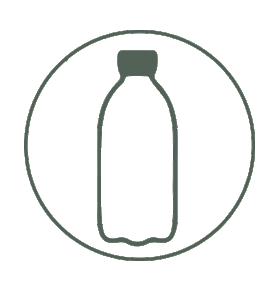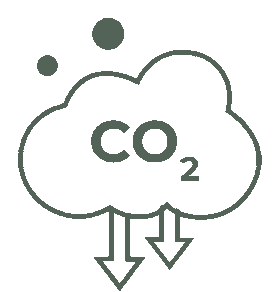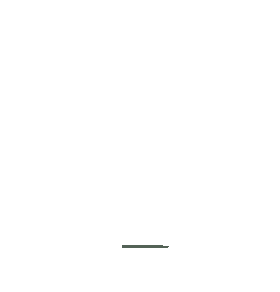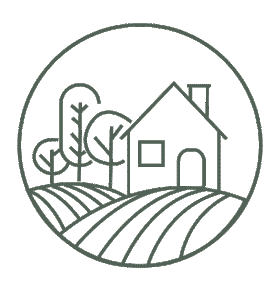Learn how to make a difference in the fight against plastic pollution. Explore eco-conscious strategies in our informative blog. Be part of the change!
Welcome to a compelling conversation where we dive into the depths of one of the most pressing environmental challenges of our time – plastic pollution. In the heart of Plastic Free July, we embarked on an enlightening Instagram Live session, with ReCircle; igniting conversations and ideas on how to turn the tide on this global issue. ReCircle is a resource recovery company working towards a circular future. ReCircle was founded in 2016, and they empower consumers, brands & government to divert waste away from landfills and oceans, back into the economy to be recycled, reused or repurposed. Now, we're excited to bring you the essence of that engaging conversation in a blog format.
(Chaitsi, Brown Living) Can we start with a true and false?
Can we get rid of all the waste we have accumulated?
(Gurashish, ReCircle)Yes and no; when it comes to dry waste — we have recyclable and non-recyclable waste. We always ask people to avoid and/or reduce the use of plastic. In the instance that one does use plastic, we have a choice to use alternatives which are recyclable. With dry waste, for example, collectively, we can learn how to reduce, repurpose and recycle materials. Similarly, with wet waste, we can start with small changes in our own homes by introducing composting and segregation of waste. Further, with energy recovery we can get rid of waste which we have accumulated, however, we need to work on this further.
Is recycling the answer to save our communities?
(Gurashish, ReCircle) True — recycling is the future. It not only reduces waste being sent to landfills and oceans, but also offsets the carbon footprint associated with products made from plastics, glass, metal, fabrics, etc.
What was the inspiration behind starting Brown Living in a marketplace that is obsessed with fast fashion and discounts on consumer products?
(Chaitsi, Brown Living) The main reason and the tipping point to start was really that it was hard to live a plastic-free life. I started my journey 7-8 years ago, and it was really like you will find me arguing with people on “Why they are unnecessarily using plastic for packaging or carrying things around. Why do people need to send each and everything wrapped in 5 layers of bubble wrap?” We used to talk about this with people thinking similarly and that’s when we thought about how we can make it easy to get onto this journey. It was technically a fight against over-consumption of plastic. A lot of the kinds of plastic you get today are not really recyclable, we can’t salvage them beyond a point. So going 100% Plastic-free was our core promise, and I’m proud to say that even today we’re sticking to our core promises.
By eliminating and reducing plastic waste over the years, how has Plastic Free July contributed towards creating a circular economy?
(Gurashish, ReCircle) Initiatives like Plastic Free July are important towards transitioning from a take-waste model towards a circular economy. We also did a waste collections drive in Mumbai in July, and continue to do so every month — encouraging people to register and share their dry recyclables. Having said that, we need to keep the momentum going throughout the year and imbibe a Plastic Free Year attitude in order to make lasting change in order to move towards a sustainable future. At ReCircle, we believe we can make a true difference if we begin to look at waste from an entirely new lens — that of being a valuable resource. So far we have diverted 100+ million kgs of waste from our oceans and landfills, impacted the lives of over 3000 informal waste workers (Safai Saathis), built a 300+ strong collector network and are present pan-India across 300 cities & towns in India. And we’re only getting started.
How has Brown Living built a sustainable commerce platform that is focused on driving valuable change?
(Chaitsi, Brown Living) We wanted to start collaborating with people, and there’s so much innovation out there that’s already done, especially in this eco-friendly and green industry, which has been around for almost 25-30 years in our country. It’s not something that’s new, it’s just that sometimes, especially in our country, unless we don’t make it sexy or cool people don’t sort of hop on to adapting to the change, and that’s something we realised very early on, that sustainability is something that everyone must practise. We must Say no to Plastic. The idea is that nobody has made it easy for people to have access to Plastic-free products. It’s actually very easy to get plastic, but is that really necessary? Our main problem with consumption was that plastic packaging actually goes to waste. Is there a way that packaging could be compostable or it could be grown into a new tree or a new plant even if you throw it out. That would mean Value, that would mean Circularity. Most of the companies in the world don't think about Circularity. But we want to tell everyone that Plastic-free is still possible, and for the people who’ve cracked it we want to help them scale, reach a new audience, that would not go out of their way to live this life, but would accept it if made convenient. So this was the basic premise and we think that there’s a lot of change happening in the consumption pattern today. All the multi billion dollar companies are trying to get these changes done in their systems, of course it won’t happen overnight, but they’re trying to be able to reduce this. Innovation happens really well with small enterprises, so we thought how do we take this to the larger image, how do we incorporate it. We’re ofcourse not completely there yet, but on a Journey.
We recently heard that you launched a new initiative. Can you tell us a bit more about it? Can technology help enable a circular economy?
(Gurashish, ReCircle) Over the past couple of years, we were seeing a lot of drawbacks and challenges that companies were facing in trying to be eco-friendly and negate their plastic footprint. We realised that there was a lack of transparency and accountability in the waste supply chain. So, we launched ClimaOne — a revolutionary technology-enabled platform designed to transform the informal waste supply chain. With ClimaOne we have all stakeholders across the value chain (collectors, processors and brands) on one platform and use data analytics and actionable insights to provide greater transparency, visibility and accountability. For brands it ensures that they avoid greenwashing and garner greater visibility. Additionally, it also gives them the confidence to send materials back into their supply chains as everything can be tracked via the platform which further strengthens the entire value chain.
We work with brands such as Marico, HUL, Dabur etc. who have a voluntary credit requirement. However, we also work with smaller brands who use plastic in their packaging and are willing to make the effort to negate it from the ecosystem. One interesting example is of a brand which doesn’t use any plastic but they are on board as partners because they want to support the ecosystem.
Can you explain the pain points/ challenges that currently exist in the sustainable ecosystem?
(Chaitsi, Brown Living) Well there are many, but the first one is that Sustainable products themselves have their own challenges in production, and typically the kind of products that sellers are either made to order or handmade. They do work with machines for manufacturing but because they work with materials that are not so widely available they might have materials shortages of some sort, and our consumers are also exposed to various platforms which do 15 minutes or 1 Day Delivery. So, one of our largest challenges is that we’ve had to educate our consumers a lot about Sustainability. These things are of course gonna take time and we’ve to make our consumers understand that don’t worry we’re not going to run away with your money, but there’s certain sense of patience in consumer behaviour that is built over time, over the last 15-20 years, and that is something like an overall mindset shift. It’s that impatience behaviour game that we’re trying to balance out, which we believe is our biggest challenge so far. On the other end, there’s a lot of education and understanding on the packaging, because the brand is sustainable but the people working may or may not be sustainable. So, in order to avoid this we’ve had to do a lot of checking before onboarding to ensure that there’s no plastic at any stage, and if there is then we have to get into the educating aspect of it. So, there are many challenges like that which we’ve to face on a daily basis but we’ve been able to work it out and set those kinds of systems and processes in place.
Anything new you're working on that we should know?
(Chaitsi, Brown Living) Oh yes, very recently we’ve launched a new feature called End to End Checkout, but to make it more easy, accessible and affordable for our consumers, we launched this feature where if you message on our Whatsapp Number, you will have the entire product browsing journey i.e.Shop by Collection, Material, Product,etc. Within whatsapp. We’ve integrated the same thing on Instagram as well. So, we’re trying to use technology in a way that we can scale our operations with not having 15 people but using AI to assist people with whatever they need. Also, we’ve launched this new plan called the Auto-repeat Plan, wherein you can like Subscribe & Save on certain products. Let’s say, you can pay for 4 Products at once at a discounted price, and then get it delivered to you every month for 4 consecutive months. Again this is done to make it easy for our consumers to shop for their monthly essentials, without having to worry about running out of our essentials.
As we conclude this transformative journey to tackle plastic pollution, we invite you to stay connected with us through our Instagram, LinkedIn, YouTube. Let's work hand in hand to turn the tide on plastic pollution and create a cleaner, greener world for generations to come.
Checkout the Live Session here.





